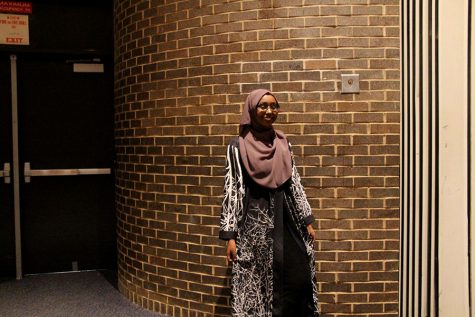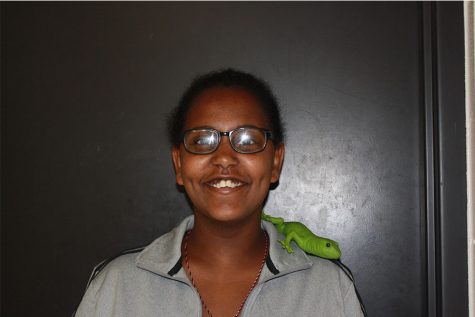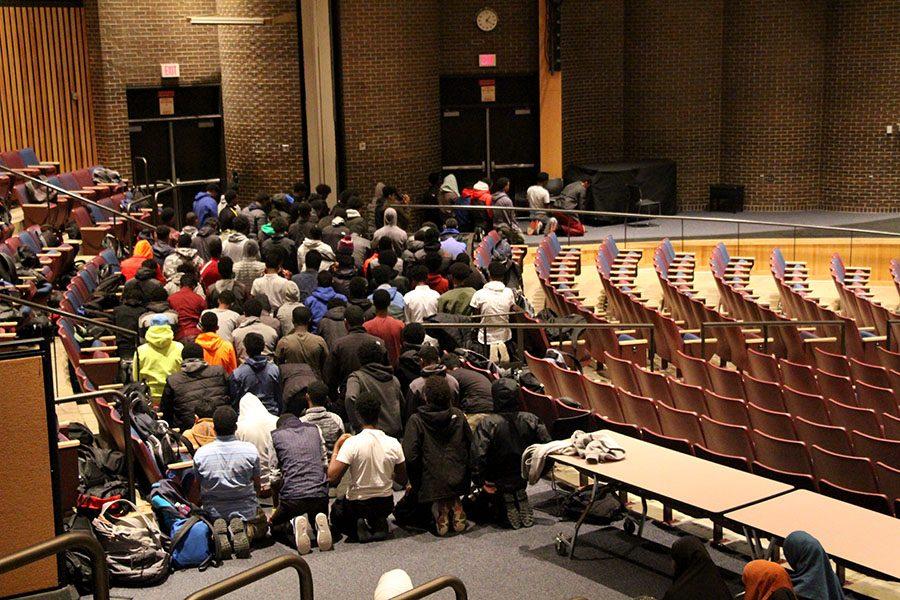A look into life as a Muslim student
A group of Muslim students praying in the auditorium at South. These prayers are organized by Muslim Students Association (MSA) and led by South students.
As you walk through the crowded hallways of South, it’s easy to pass by your classmates and not think much about their lives. For many students, religion is a big part of their life. Most people know information about Christianity but less people know details about the second most popular religion in the world, Islam. Many students at South are practicing Muslims (followers of Islam) yet misinformation or just a lack of information is still common among non-Muslim students. Being knowledgeable about the identity of the people around can create a more connected community.
According to National Public Radio, in 2010, there were about 1.6 billion Muslims around the world, about 23% of the world’s population. Islam is also the fastest growing religion. Islam has similarities to other prominent religions, such as Christianity. As Christianity has the Holy Bible, Islam has the Quran. As there is a Church for Christians on Sunday, there is a Mosque for Muslims on Friday.
One of the many Muslim students at South is senior Salma Ahmed. She is one of the co-president of Muslim Student Association. Ahmed wanted to join MSA because she wanted to learn more about her religion, and to learn the different ways other students at South define what being a Muslim is about.
“Salma is a really good leader in terms of … getting all the students together, bringing in ideas…she leads by example,” said Ali Osman, adviser of MSA and a security guard at South.
Muslim Student Association is a place where Muslim students come together in a safe environment to share their feelings, experiences and learn from each other. “Our goal is raise awareness about Islam and hate crimes, to unit all the Muslims at South, especially help the students and teachers understand our religion,” said co-president of MSA and Senior Anas Farah. They are planning a performance that would contain spoken word, a fashion show and skits that would educate the South community about Islam.
Being a female and a Muslim, Ahmed faces many challenges. An example are the islamophobic attacks that can happen to her due to wearing a hijab.“Sometimes it’s hard to tell if a guy is Muslim or not, but if a girl wearing a hijab, ‘Oh there you go, she is Muslim,’” explained Ahmed. “Us wearing our hijab, especially now with Donald Trump being president, now we have a target on our head but [wearing a hijab] is our safety, I will never take this off…nobody can make me take this off.”
As the years go by and Muslim children start attending Saturday and Sunday school, they start to learn about their religions more and are more open to educating their peers. “When I was little and people used to ask me why I wear my hijab, I would just say ‘Oh it’s because of my religion’ but now I know more about [the hijab],” said Ahmed.
Dugsi is a Saturday and Sunday school for Muslims who want to learn about the teachings of Islam and want to read the Quran. Due to the fact that the Quran is written in Arabic, students must learn to read Arabic as well. Students of Dugsi graduate when they finish reading the Quran. “The more I learned about my religion and the many different stories about the prophets, the closer I felt towards [my religion], “ said Ahmed
One of the teachings in Dugsi is about the holy month of the year, Ramadan. It is the ninth month in the Islamic calendar.During Ramadan Muslims fast from sunset to sundown, which means they can’t eat anything during that time. They attend the Mosque everyday. They cook special meals throughout the day, to eat after sundown.
“Throughout the day, we usually cook food, then break our fast, and then go to the Masjid (Arabic word for Mosque)…the last ten days, mens can sleep in the Masjid ,” explains Ahmed.
The teachings of Islam are based on the 5 pillars of Islam. Shahada is faith in Allah and Muhammad as the messenger of Allah. Sawm is fasting during the month of Ramadan. Hajj is pilgrimage to Mecca for those who financially and physically can. Charity is Zakāt, the idea that one must give back to the community. Lastly there is prayer, Salat. There are 5 prayers each day, at dawn, mid-day, late-afternoon, sunset and nightfall.
Prayer is a symbol of praising your god, and a way of forming a spiritual relationship with your god. “Praying not only brings me closer to god, but it’s also a reminder of why I wear the hijab and go to Islamic school. I feel a sense of connection with God (Allah) and a sense of peace. Five times a day I stop for a few moments and think about Allah and Islam and how lucky I am to be apart of Islam. It’s my private time to praise Allah and thank him,” added Ahmed.
However, despite the teaching of Islams, and the amount of Muslim people around the world there are still misconceptions about Islam as a religion. One of the misconceptions is that Islam is a religion of terror, but the truth is actually the opposite.
Ahmed explained in an essay that she wrote titled “Peace”. “We were doing an assignment in my PSEO class about our beliefs & had to write a “This I Believe” essay. I choose to write about this topic because it’s something that I’m familiar with & something I’m also very passionate about.”
In the essay she wrote; “People assume that Islam is a religion of terror but that is ironic because Islam means peace. Yes, people bomb the streets in the name of Islam, but if the religion doesn’t approve, why are the people to blame?”
Ahmed also brought a new perspective by comparing how people view Christians versus Muslims. “We don’t judge the value of Christianity by those Christians who enslaved and who continue to abuse blacks or by Christians who bomb abortion clinics; we are able to appreciate the lessons of Jesus despite those who misunderstand and misapply the teachings,” she wrote. This was part of the ending paragraph for her essay that leaves people with new set of lens on misconceptions about Islam.
Now if you want to know how to not fall for those misconceptions, Ahmed has a few suggestions. “[Muslims are] nice like, our religion tells us to smile at people, we get Suna (good deeds) for it. I would say to go visit a local mosque, talk to an Imam (prayer leader)about Islam, talk to some students about Islam, don’t just go based on the people who are just bombing events like Al Qaeda and Al Shabab, they might consider themselves Muslims but in my eyes they’re not,” she explained.


Sophomore Asanti Bekele is one of the newest members to our Southerner staff and is full of inspiration and energy.
Her interest in journalism was...











